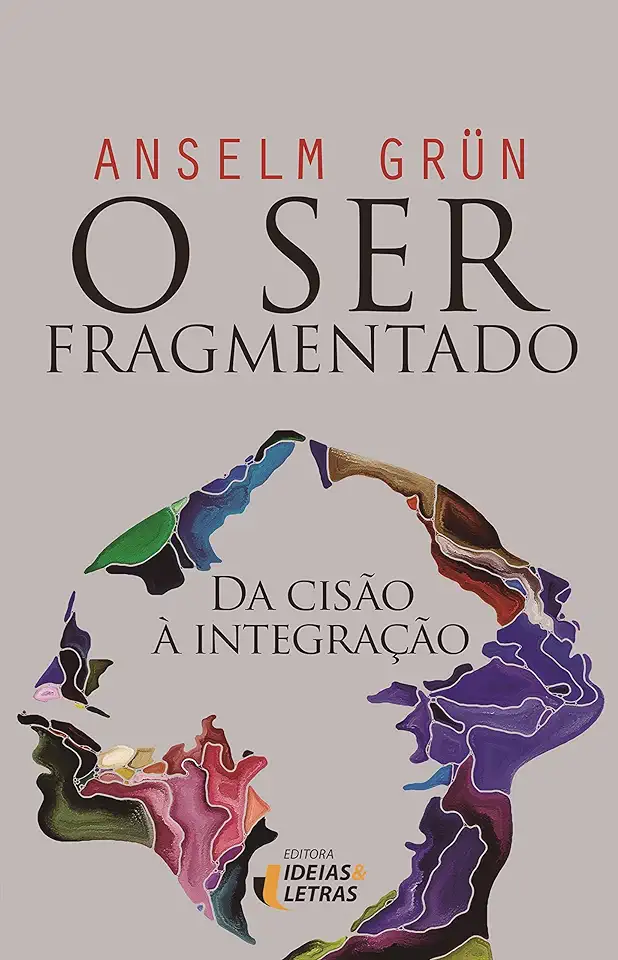
The Fragmented Self: From Dissociation to Integration - Anselm Grun
The Fragmented Self: From Dissociation to Integration
Anselm Grun
In today's fast-paced and demanding world, it is easy to feel overwhelmed and disconnected from our true selves. We may find ourselves constantly juggling multiple roles and responsibilities, struggling to keep up with the demands of work, family, and social life. This fragmentation of the self can lead to a sense of emptiness, anxiety, and depression.
In his groundbreaking book, "The Fragmented Self: From Dissociation to Integration," renowned psychotherapist and spiritual guide Anselm Grun offers a profound exploration of the causes and consequences of fragmentation and provides a path to healing and wholeness. Drawing on his extensive experience in both psychology and spirituality, Grun argues that fragmentation is a common human experience that can be traced back to early childhood experiences of trauma, neglect, or abuse.
Understanding Fragmentation
Grun explains that fragmentation occurs when we experience overwhelming emotions or traumatic events that we are unable to process or integrate into our conscious awareness. As a defense mechanism, our psyche splits off these difficult experiences, creating separate parts or fragments of the self. These fragments may manifest as emotional outbursts, physical symptoms, or compulsive behaviors.
The Consequences of Fragmentation
Fragmentation can have a profound impact on our lives, leading to a range of psychological and emotional problems, including:
- Disconnection from the self: We may feel like we are living on autopilot, disconnected from our true feelings and desires.
- Anxiety and depression: Fragmentation can lead to chronic feelings of anxiety and depression, as we struggle to cope with the unresolved emotions and experiences that are buried within us.
- Relationship problems: Fragmentation can make it difficult to form and maintain healthy relationships, as we may be unable to fully connect with others or trust ourselves.
- Addiction and compulsive behaviors: Fragmentation can lead to addictive behaviors, such as substance abuse, gambling, or excessive eating, as we attempt to escape from our inner pain.
The Path to Integration
Grun emphasizes that fragmentation is not a permanent condition. It is possible to heal and integrate the fragmented parts of the self, leading to a greater sense of wholeness, well-being, and fulfillment. The path to integration involves:
- Awareness: The first step is to become aware of our fragmentation and the ways in which it is affecting our lives. This can be done through self-reflection, journaling, or therapy.
- Acceptance: Once we have become aware of our fragmentation, it is important to accept it as a part of our experience. This does not mean condoning or justifying our past experiences, but rather acknowledging them with compassion and understanding.
- Healing: The next step is to begin the process of healing our fragmented parts. This can be done through therapy, meditation, yoga, or other forms of self-care.
- Integration: As we heal our fragmented parts, we can begin to integrate them into our conscious awareness. This process leads to a greater sense of wholeness, self-acceptance, and inner peace.
Conclusion
"The Fragmented Self: From Dissociation to Integration" is a powerful and transformative book that offers a profound understanding of the causes and consequences of fragmentation and provides a clear path to healing and wholeness. Through his compassionate and insightful writing, Anselm Grun guides readers on a journey of self-discovery and integration, empowering them to live more authentic and fulfilling lives.
If you are struggling with fragmentation, anxiety, depression, or other psychological or emotional problems, I highly recommend reading this book. It has the potential to change your life.
Enjoyed the summary? Discover all the details and take your reading to the next level — [click here to view the book on Amazon!]